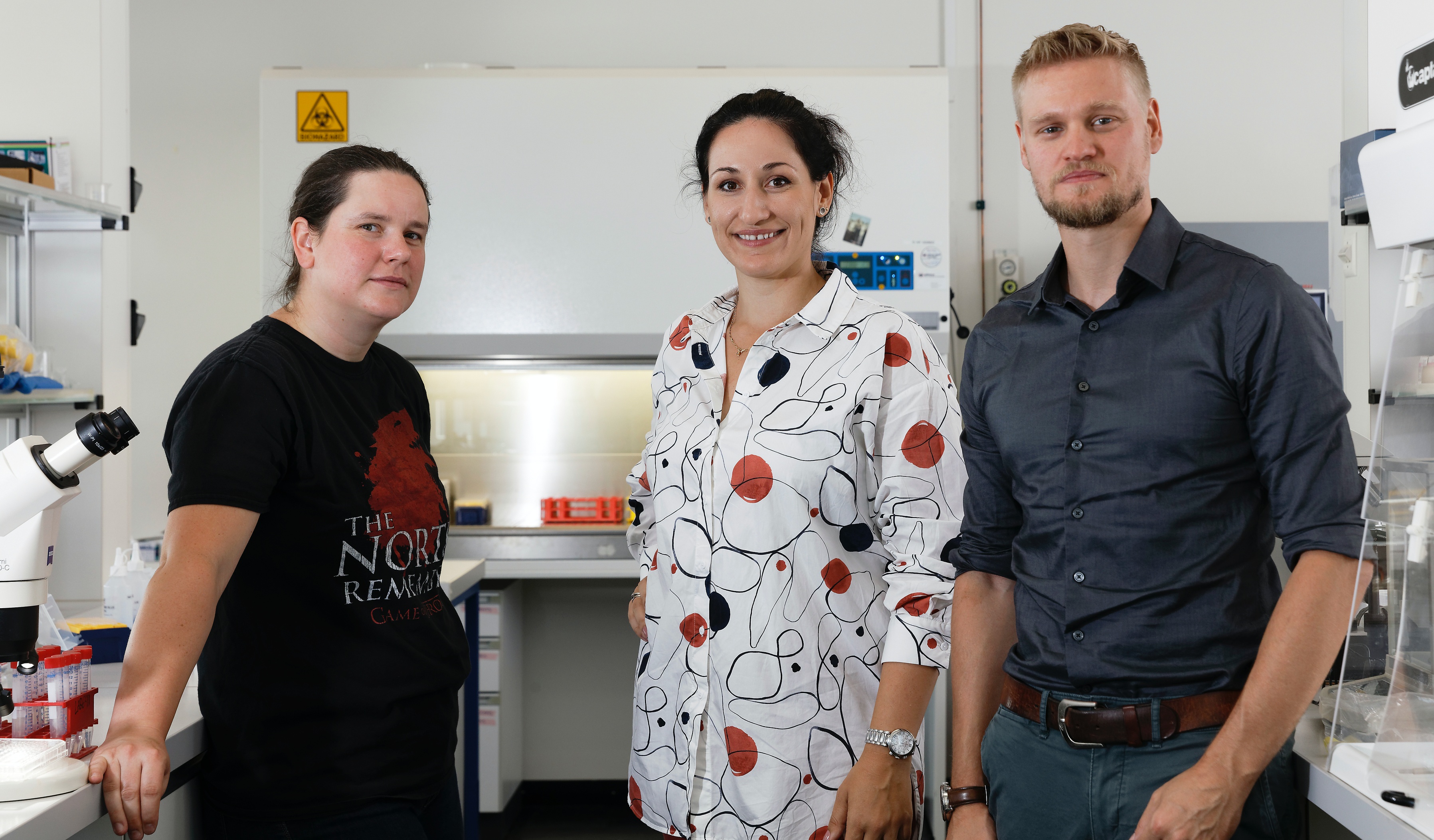
The medical approach being introduced by Muvon Therapeutics is a regenerative therapy designed to address personalized skeletal muscle regeneration, targeting first stress urinary incontinence in both men and women. Muvon has secured financial support from investors, programs like Horizon 2020 and several organisations including the University of Zurich, Wyss Zurich and Lichtsteiner Foundation. The phase 1 clinical study is currently going well towards finalization.
Urinary Incontinence affects over 400 million people worldwide and one in four women above the age of 18 experience episodes of involuntary urine leakage. Stress Urinary Incontinence (SUI) is the predominant subtype of incontinence and is one of the under-diagonalised disorders, yet about 30-60% of women above the age of 40 are suffering from SUI. While non-pharmacological interventions partly help to alleviate the symptoms, long-term regenerative therapy can improve the lives of the affected individuals significantly. This is where Muvon Therapeutics, the spin-off from the University of Zurich comes in.
The Zurich based biotech startup is developing an autologous cell therapy for the treatment of damaged skeletal muscles in patients with SUI. The company’s first focus of the pipeline is on developing a safe and effective treatment for stress urinary incontinence in women, supporting them respectfully throughout their journey to a healthy life.
The approach uses the patient's own muscle precursor cells (MPC) to regenerate the damaged muscle tissue. In the first stage, the cells are isolated in a small muscle biopsy and multiplied under strictly monitored conditions and activated to start proliferating into MPCs. Once the required cell number is reached, the cells are harvested. The quality of these cells is then tested by an external, certified laboratory before the final product is prepared and transported to the hospital where it is injected into the damaged muscle of the patient. Once injected, the MPCs begin to differentiate, form new muscle fibres and connect with existing muscle tissue leading to regeneration of the muscle. This regeneration is further supported by electromagnetic stimulation.
Studies show a high potential of the therapy
The safety and efficacy of the therapy have already been demonstrated in 12 years of preclinical research at the University of Zurich. Results showed that six months after injection of cells into a damaged sphincter muscle, nearly 90% of the original muscle strength could be achieved. The startup is currently conducting the first-in-human studies to further assess the efficacy and safety of the therapy in patients. The first patient has already been treated in March 2020, each being followed up for 6 months, and the final results are expected this autumn.
“The phase 1 study is currently going well towards finalization and we are impressed by the number of people that are approaching us to join the current and the Phase II study”, says Deana Mohr-Haralampieva, CEO & co-founder at MUVON Therapeutics AG.
If successful, therapy will present a low-risk, minimally invasive treatment for SUI which does not involve any foreign material and addresses an underlying cause of the disease (i.e. intrinsic sphincter deficiency). Additionally, it is not prohibitive for follow-up treatments and does not complicate later childbirth.
Funding to fuel development
To this day, the startup has raised a seed financing round which includes grants such as CHF 6 million from Horizon 2020 and other smaller grants as well as funds from UZH Entrepreneur Fellowship. Most recently, Muvon and its team of seven employees joined the Wyss Zurich incubator and is entitled to funding over the next three years for clinical development.
Muvon is raising additional funds in the ongoing 15 million series A round. The Lichtsteiner Foundation has already committed to invest in the company. The funds will enable the company to complete its clinical studies and to scale up by automating the production cycle to address the high number of patients living with the SUI.
(RAN)
Photo: Werner Siemens Foundation / Oliver Lang























































Please login or sign up to comment.
Commenting guidelines